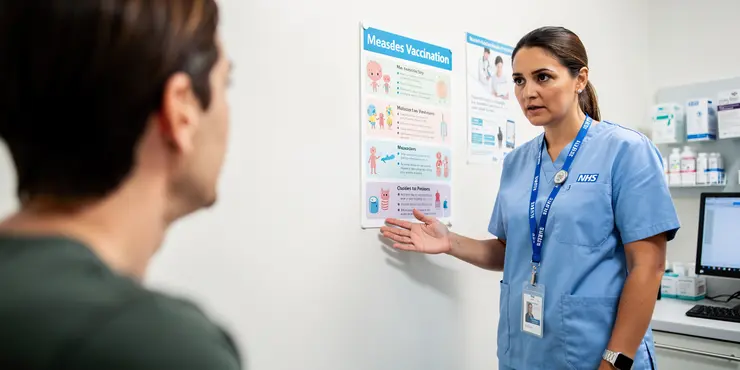
Find Help
More Items From Ergsy search
-
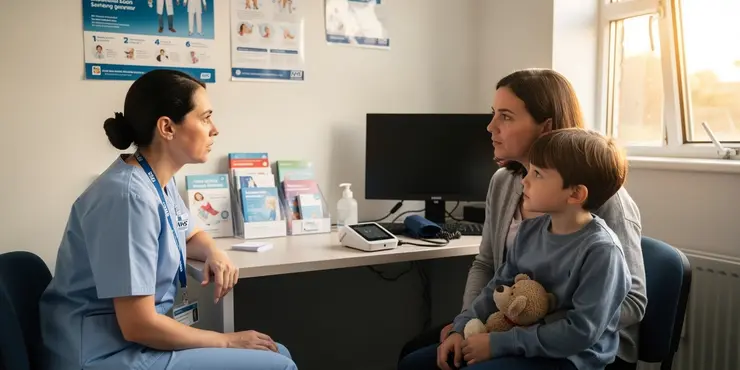
Are measles outbreaks common in the UK?
Relevance: 100%
-
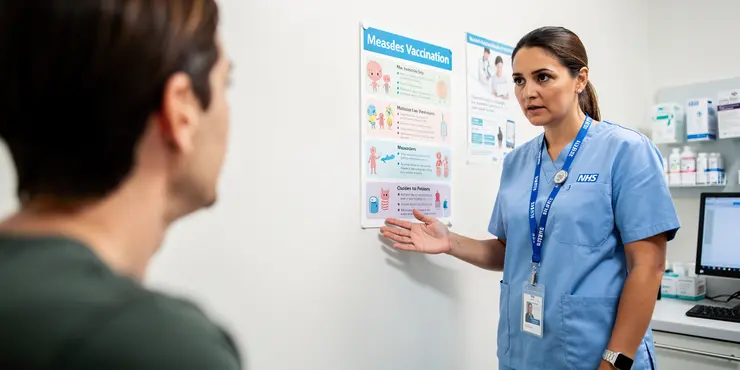
Are measles more common outside of the UK?
Relevance: 96%
-
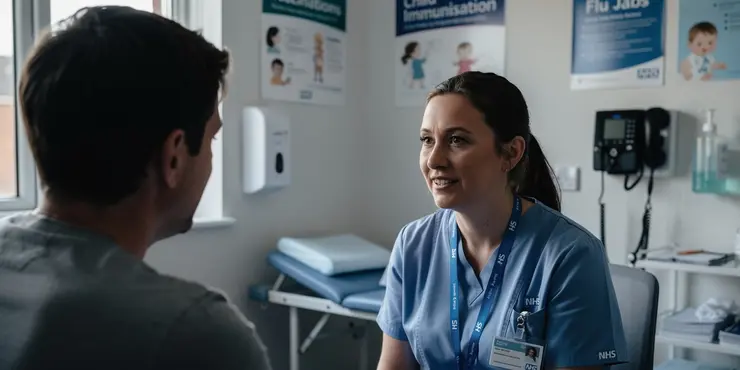
Why is measles less common in the UK?
Relevance: 94%
-
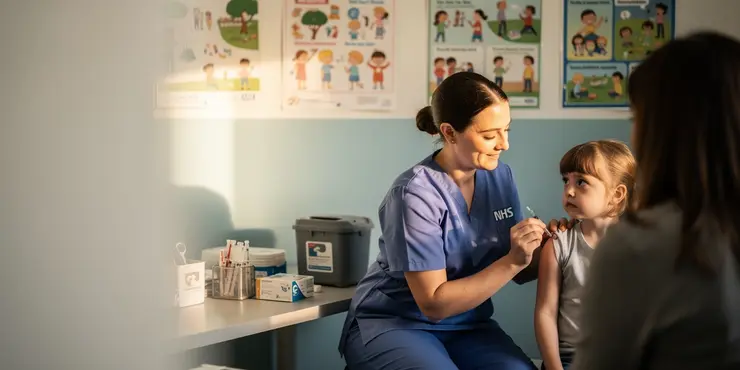
Measles
Relevance: 82%
-
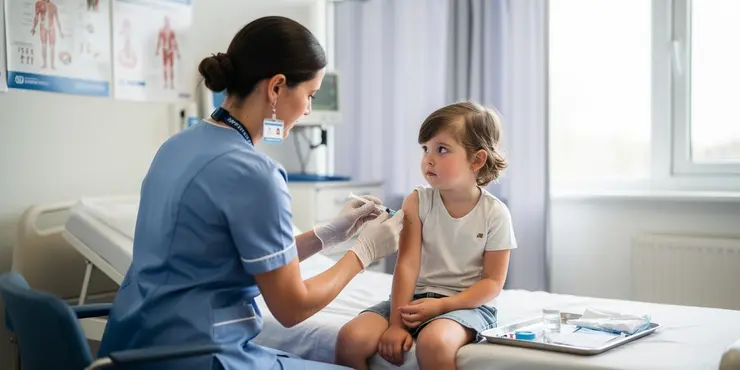
What is measles?
Relevance: 79%
-
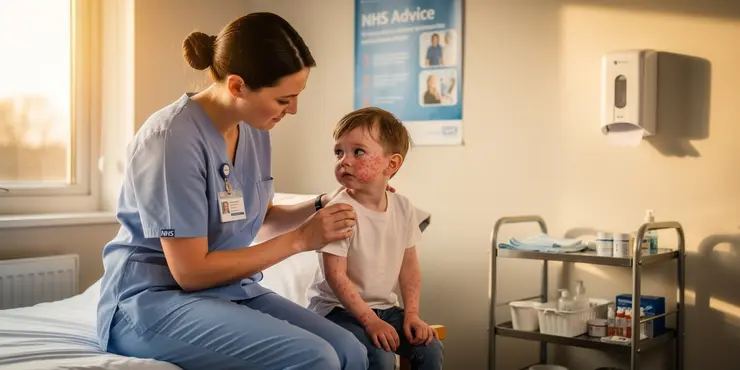
What are the symptoms of measles?
Relevance: 78%
-
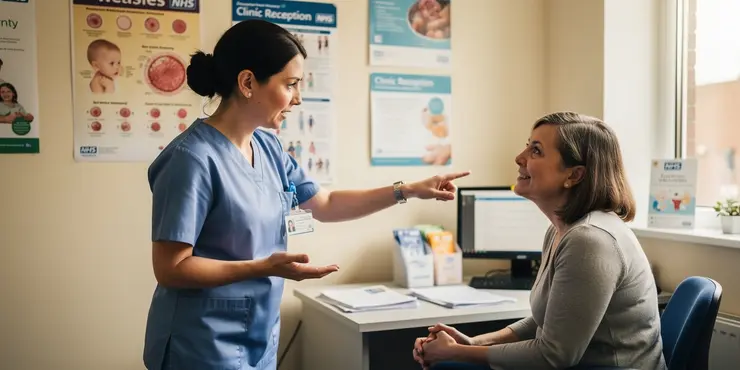
What are the symptoms of measles?
Relevance: 78%
-
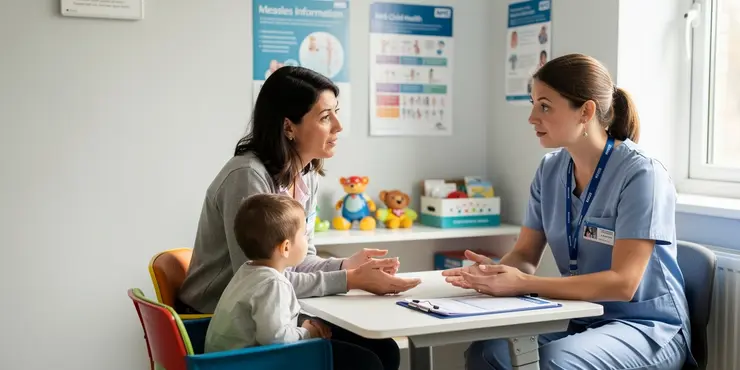
Is there a treatment for measles?
Relevance: 78%
-
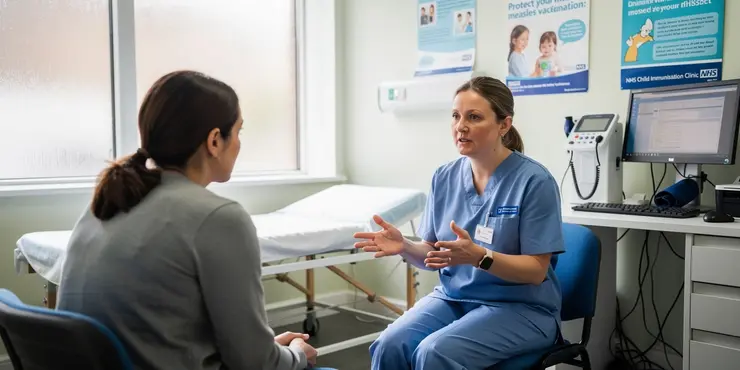
Can measles be serious?
Relevance: 78%
-
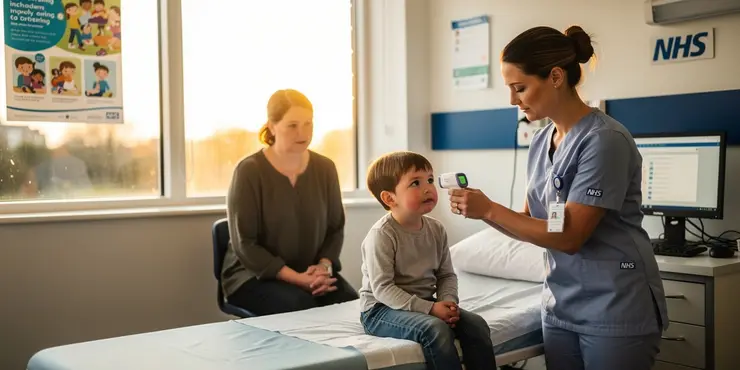
What are the symptoms of measles?
Relevance: 78%
-
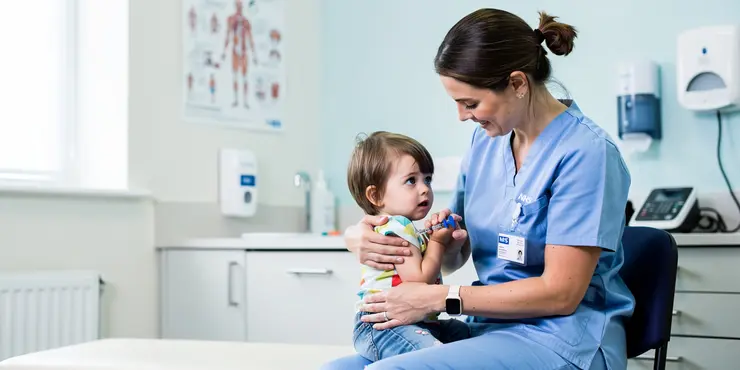
Can measles cause complications?
Relevance: 76%
-
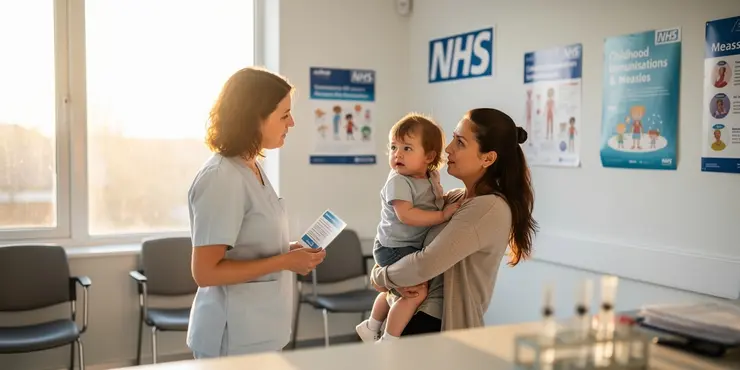
How contagious is measles?
Relevance: 76%
-
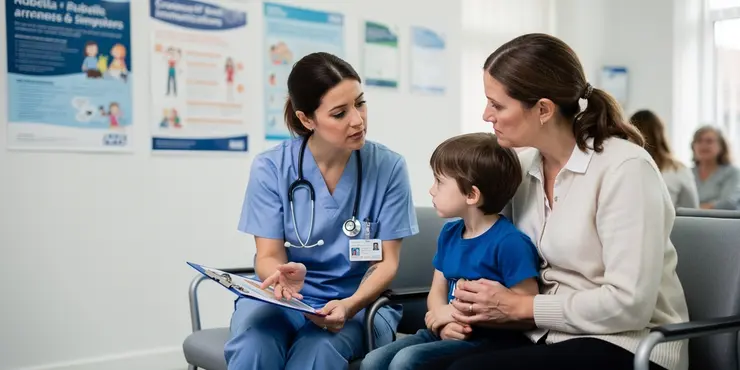
Is Rubella the same as measles?
Relevance: 76%
-
Is there a treatment for measles?
Relevance: 76%
-
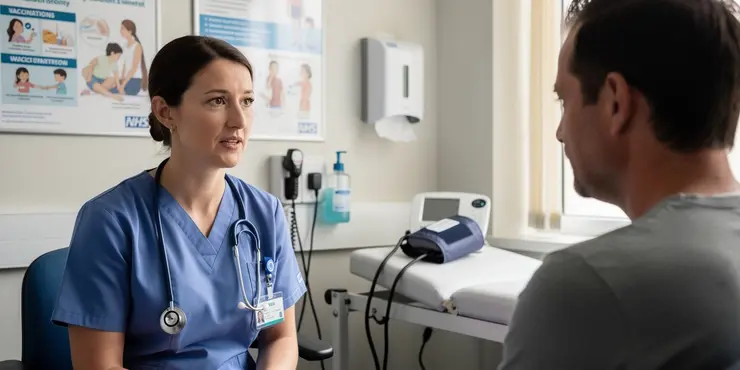
How is measles transmitted?
Relevance: 76%
-
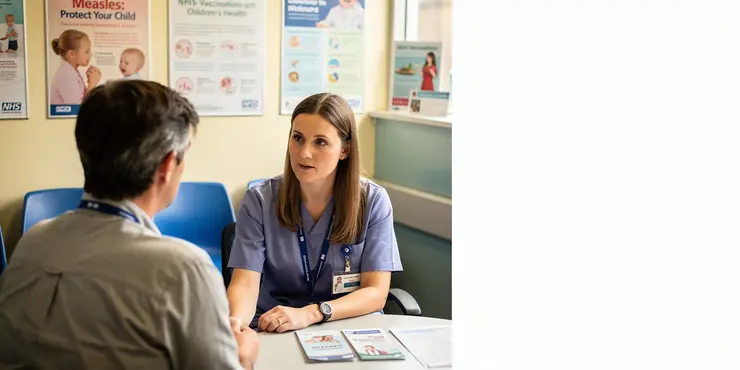
How is measles transmitted?
Relevance: 76%
-
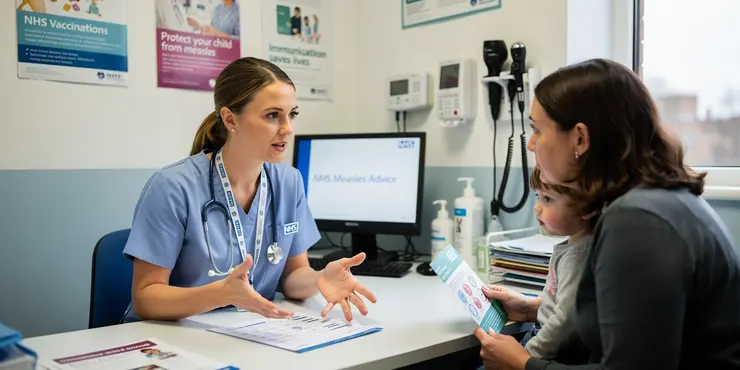
How is measles spread?
Relevance: 74%
-
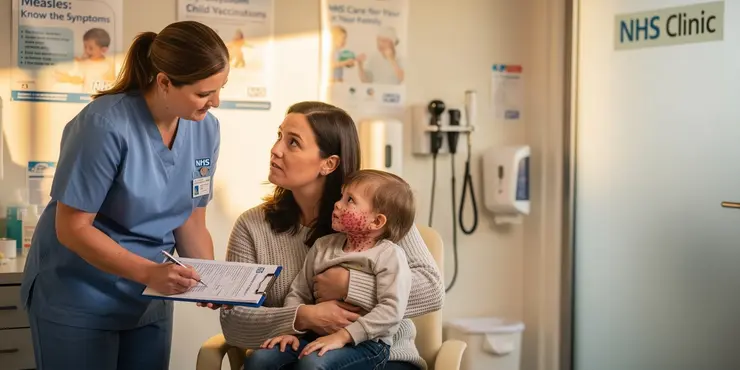
Can measles be treated?
Relevance: 73%
-
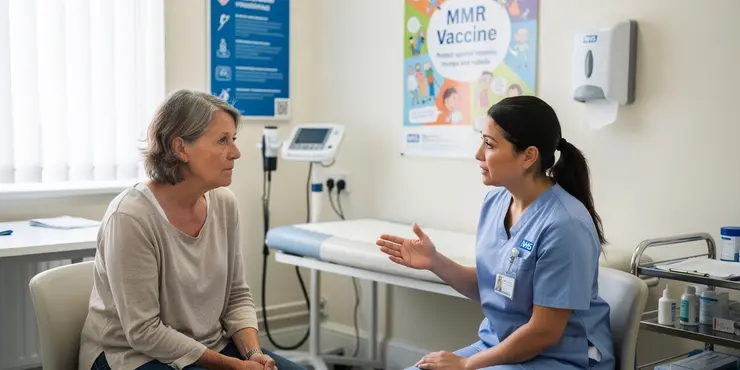
Can adults get measles?
Relevance: 72%
-
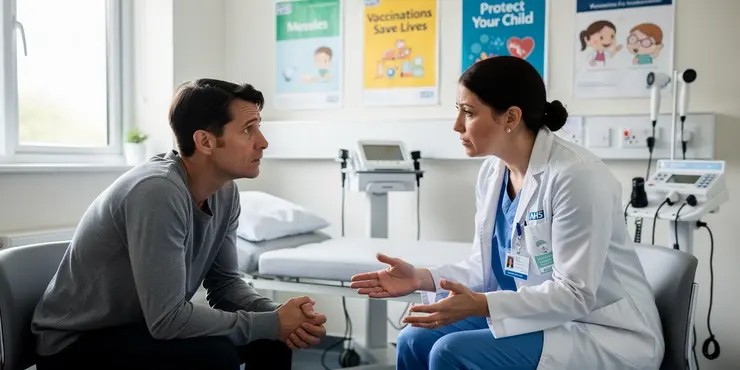
What complications can arise from measles?
Relevance: 71%
-
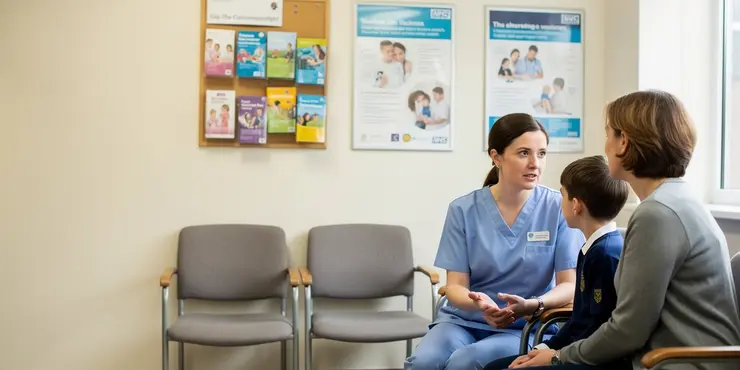
How can measles be prevented?
Relevance: 70%
-
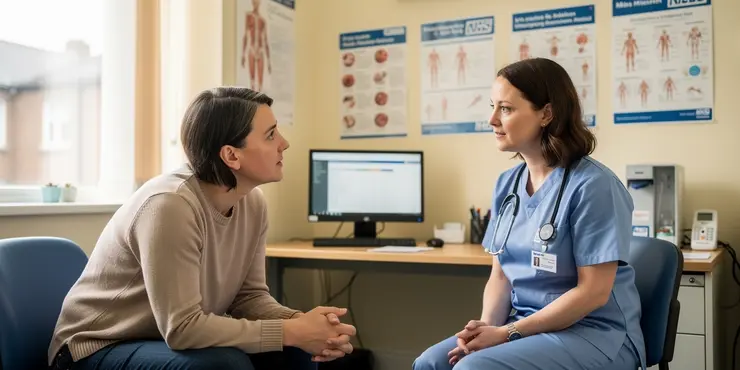
What should I do if I suspect I have measles?
Relevance: 70%
-
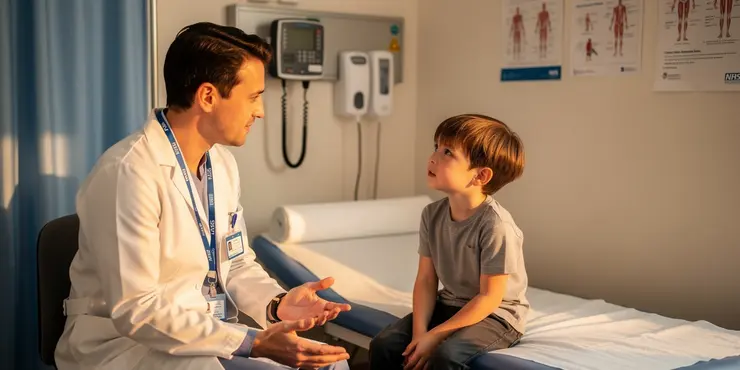
Why are measles outbreaks still occurring?
Relevance: 70%
-
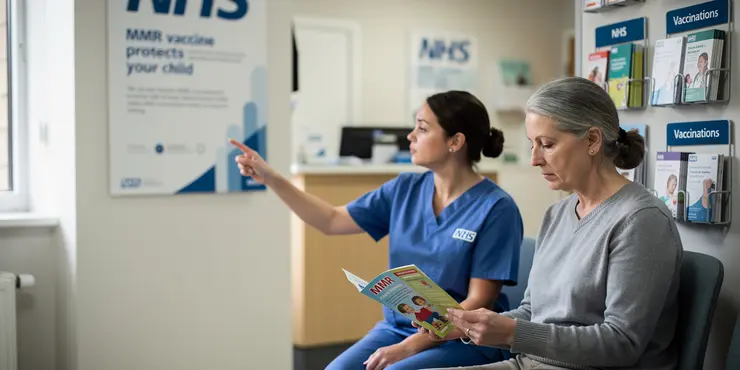
Are measles cases rising in the UK?
Relevance: 70%
-
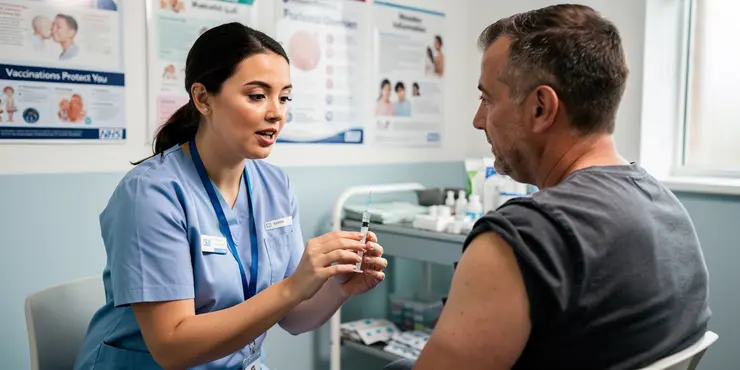
Can the measles vaccine be given to adults?
Relevance: 69%
-
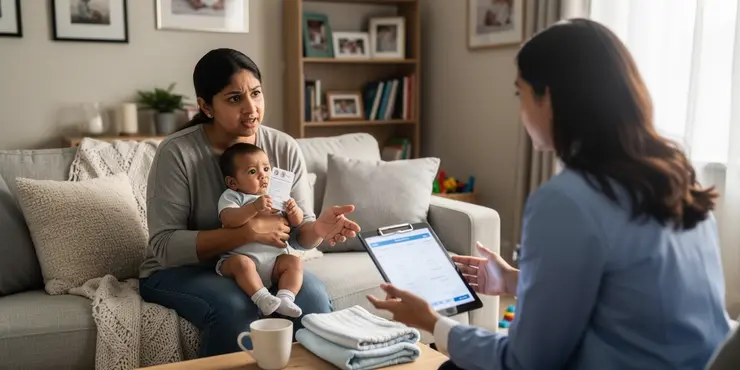
Who is most at risk from measles?
Relevance: 69%
-
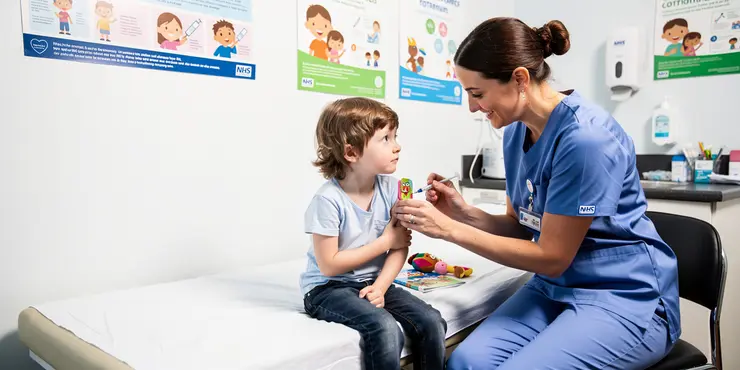
Which countries have higher rates of measles?
Relevance: 68%
-
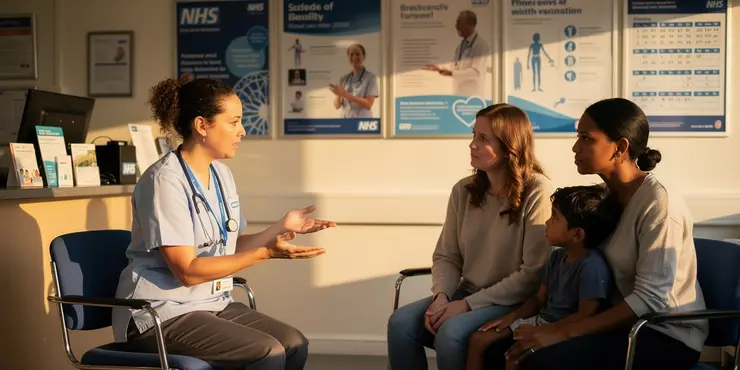
How long is a person with measles contagious?
Relevance: 68%
-
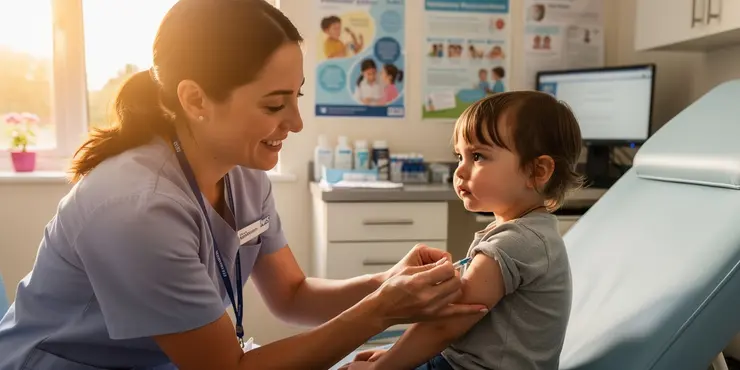
How does vaccination affect measles rates?
Relevance: 67%
-
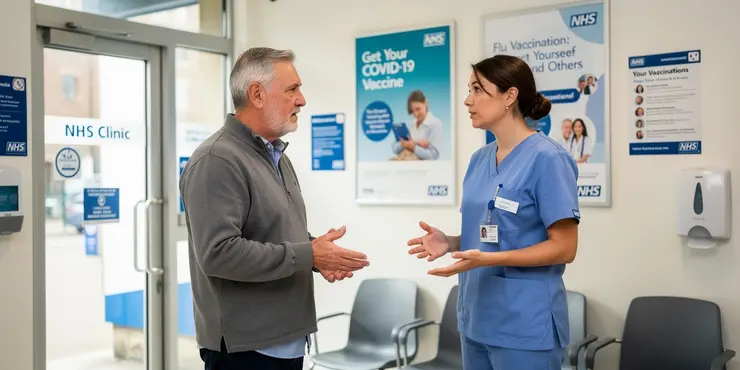
Are adults in the UK at risk from measles?
Relevance: 67%
-
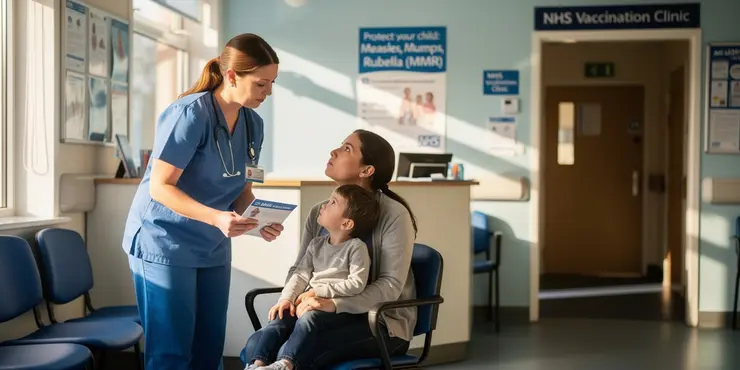
Are measles cases currently rising in the UK?
Relevance: 67%
-
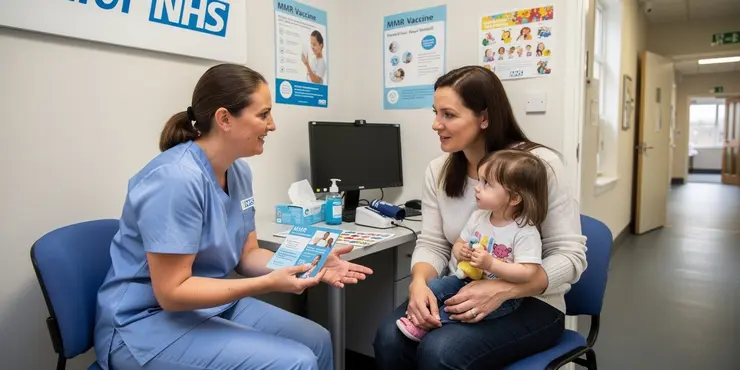
How can measles outbreaks be prevented?
Relevance: 67%
-
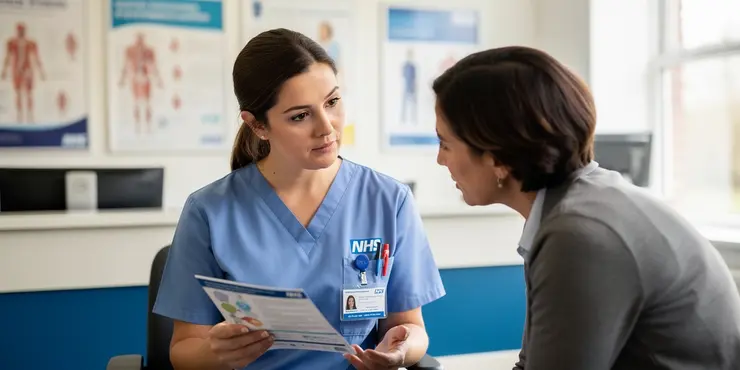
Is it necessary to get a measles vaccine before travelling?
Relevance: 66%
-
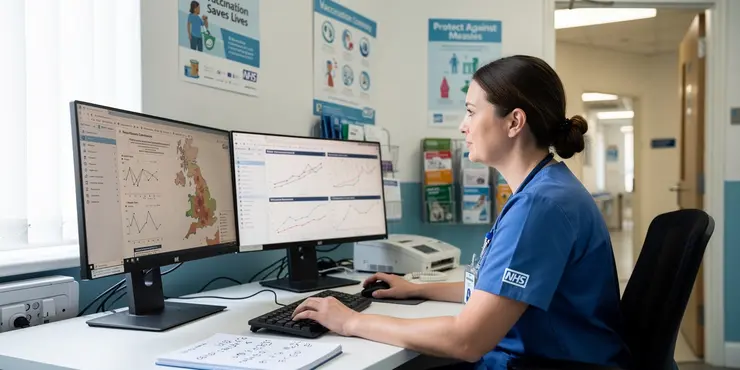
How does the UK monitor measles outbreaks?
Relevance: 65%
-
What should you do if you suspect you have measles?
Relevance: 65%
-
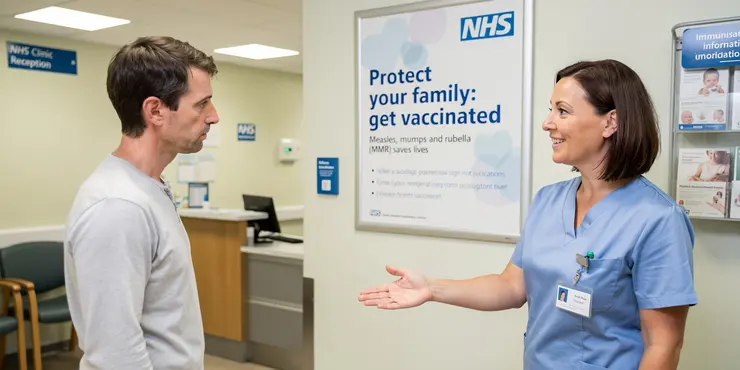
What is causing the rise in measles cases in the UK?
Relevance: 65%
-
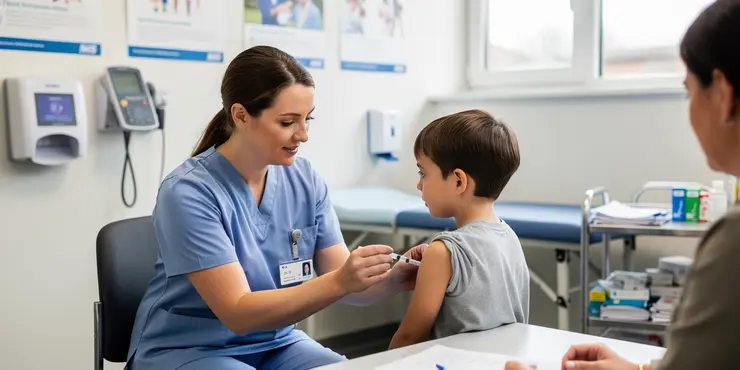
Can you get measles more than once?
Relevance: 64%
-
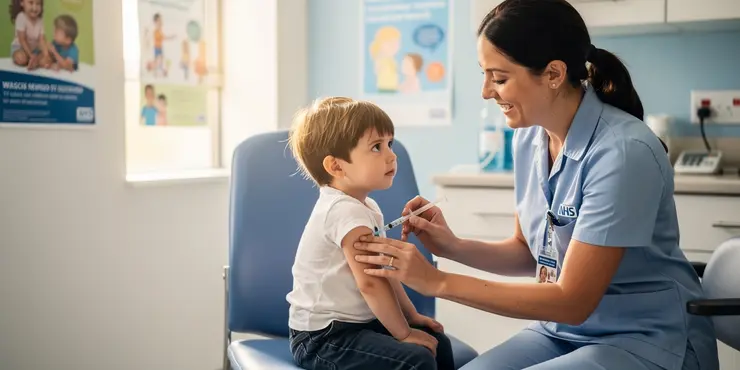
What is the current measles vaccination coverage in the UK?
Relevance: 64%
-
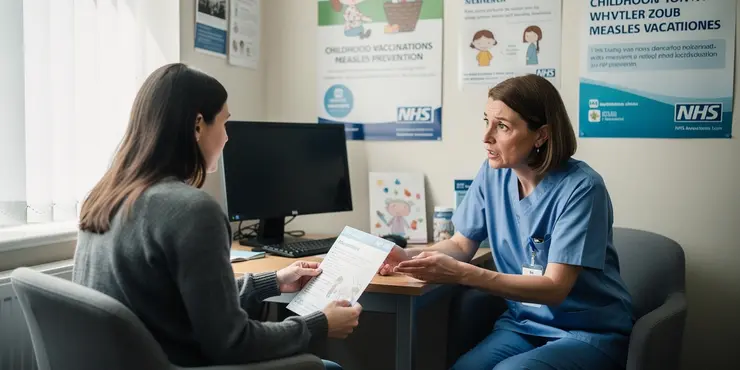
Is there a risk of global spread if measles cases rise in the UK?
Relevance: 63%
-
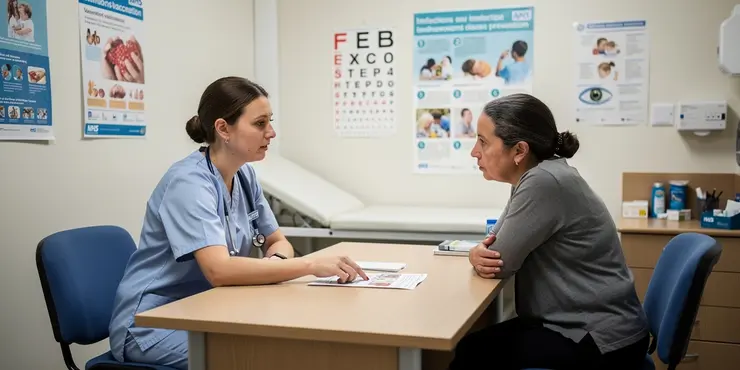
What should you do during a measles outbreak?
Relevance: 63%
Are Measles More Common Outside of the UK?
Understanding Measles Incidence Globally
Measles is a highly contagious viral disease that is preventable through vaccination. Globally, the incidence of measles varies significantly from one region to another due to differences in healthcare infrastructure, vaccination rates, and public health policies. While the United Kingdom has managed to maintain relatively low incidence rates due to effective vaccination programs, measles is more common in several other parts of the world, especially in countries with lower vaccination coverage.
Comparing Measles Rates in the UK to Other Regions
The United Kingdom benefits from a well-established National Health Service (NHS) and high awareness regarding vaccination, which has helped keep the measles rates relatively low. However, in regions such as parts of Africa and Asia, where vaccination coverage can be inconsistent, measles outbreaks are more prevalent. Factors contributing to this include limited access to healthcare facilities, lack of awareness, and in some cases, logistical challenges that hinder vaccination campaigns. Additionally, regions experiencing conflict or economic instability might see reduced vaccination efforts, making them more susceptible to outbreaks.
The Importance of Vaccination and Herd Immunity
The World Health Organization (WHO) has set a goal to eliminate measles globally, but achieving this requires maintaining high vaccination coverage. The Measles, Mumps, and Rubella (MMR) vaccine is highly effective at preventing measles when administered according to schedule. In the UK, the high uptake of the MMR vaccine has contributed to establishing herd immunity, which protects the community by ensuring a significant portion of the population is immune to the disease, thereby reducing its spread. In contrast, countries with lower vaccination rates struggle to achieve such a level of protection, resulting in more frequent outbreaks.
Challenges and Solutions to Measles Prevention Worldwide
To reduce the global burden of measles, international efforts focus on improving vaccination rates, even in the most challenging regions. This involves collaborations between governments, non-governmental organizations, and global health bodies. Education campaigns, providing access to vaccines, and addressing vaccine hesitancy are critical components of these efforts. For readers in the UK, it is essential to appreciate the benefits of vaccination not only for individual health but also in contributing to global public health by supporting efforts to reduce measles outbreaks worldwide.
Are Measles More Common Outside of the UK?
Understanding Measles Around the World
Measles is a disease that spreads easily. You can stop it by getting a vaccine. How often people get measles is different in each place. This depends on how good their healthcare system is, how many people get the vaccine, and the rules about public health. In the UK, people don't get measles as often because lots of people get vaccinated. But in other parts of the world, like in some countries with low vaccination, more people get measles.
Comparing Measles in the UK to Other Places
In the UK, the National Health Service (NHS) makes sure many people know about vaccines and get them. This keeps measles cases low. But in places like parts of Africa and Asia, fewer people get vaccines, so measles happens more. This can be because it's hard to get to healthcare, people don't know much about vaccines, or there are problems that stop vaccine programs. Also, places with war or money problems may find it hard to give vaccines, so measles can spread more.
Why Vaccination is Important
The World Health Organization wants to stop measles everywhere. To do this, lots of people need to get vaccines. The MMR vaccine is very good at stopping measles. In the UK, many people get the MMR vaccine, which helps protect everyone. This is called herd immunity. It means if many people are safe from measles, it's harder for the disease to spread. But in places where not many get the vaccine, they can't stop measles from spreading easily.
Stopping Measles Worldwide
To stop measles around the world, we need to get more people vaccinated, even in hard places. This means countries and health groups work together. They need to teach people about vaccines, make sure vaccines are available, and help people trust them. People in the UK should know that getting vaccinated helps not just them, but also stops measles from spreading globally. Everyone doing their part helps keep people safe worldwide.
Frequently Asked Questions
Are measles more common outside of the UK?
Yes, measles are generally more common outside of the UK, particularly in regions with lower vaccination rates.
Why is measles less common in the UK?
The UK has a strong vaccination program with high coverage of the MMR vaccine, which protects against measles, mumps, and rubella.
Which countries have higher rates of measles?
Countries with lower vaccination rates, particularly in parts of Asia, Africa, and Eastern Europe, tend to have higher rates of measles.
How does vaccination affect measles rates?
High vaccination rates lead to herd immunity, reducing the likelihood of measles outbreaks.
Is it necessary to get a measles vaccine before travelling?
Yes, it is recommended to ensure your MMR vaccination is up to date before traveling to areas with higher measles rates.
What is herd immunity?
Herd immunity occurs when a high percentage of the population is immune to a disease, reducing its spread.
Can adults get measles?
Yes, adults can get measles if they are not vaccinated or have not had the disease before.
What are the symptoms of measles?
Symptoms include high fever, cough, runny nose, inflamed eyes, and a distinctive red rash.
Can measles be serious?
Yes, measles can lead to serious complications such as pneumonia, encephalitis, and even death.
How is measles transmitted?
Measles is highly contagious and spreads through respiratory droplets from coughs and sneezes.
At what age is the MMR vaccine given in the UK?
The first dose is usually given to children at 12 to 15 months of age, with a second dose at 3 years and 4 months.
Is there a treatment for measles?
There is no specific treatment for measles, but supportive care can help relieve symptoms and prevent complications.
Why are measles outbreaks still occurring?
Outbreaks can occur due to pockets of low vaccination coverage and international travel.
What should I do if I suspect I have measles?
Contact your GP and isolate yourself to prevent spreading the disease to others.
Can the measles vaccine be given to adults?
Yes, adults who have not been vaccinated or have no history of measles can receive the MMR vaccine.
Do more people get measles in other countries than in the UK?
Measles is a sickness that can make people feel very sick. People in some countries may get it more often than people in the UK.
Here are some things that can help you understand:
- Look at maps. They can show where measles happens a lot.
- Listen to talks or watch videos about measles. They can explain things simply.
- Ask someone to read with you if you find it hard alone. It can make it easier.
These things can help you learn more about measles in different places.
Yes, people get measles more often in other countries than in the UK. This happens more in places where not many people get the vaccine.
Why don't many people get measles in the UK?
In the UK, not many people get measles because of vaccines. Vaccines are special medicine that help stop people from getting sick. Most children get a measles vaccine. This helps keep everyone safe.
If you want more help, ask a grown-up or use a picture chart. These can make things easy to understand.
The UK gives lots of people the MMR vaccine. This vaccine helps keep you safe from three illnesses: measles, mumps, and rubella.
Which countries have more measles?
Some countries have more people with measles.
Measles is a sickness that spreads and makes you feel very ill.
Ask a grown-up to help you look up which countries have more measles.
You can also use tools like maps or simple charts to learn more.
In some places in Asia, Africa, and Eastern Europe, not many people get vaccines. Here, more people get sick with measles.
How do vaccines change how often people get measles?
If lots of people get the measles vaccine, it helps to stop the spread of the disease. This means fewer people will get sick.
Do I need the measles shot before I go on a trip?
Here are some things to help you:
- What is a measles shot? It is a medicine to keep you safe from measles, a disease that makes you very sick.
- When to get it? Talk to your doctor to find out if you need it before your trip.
- Why do I need it? The shot helps stop you from getting sick when you travel.
- What can help? Ask a friend, family member, or your doctor to help you understand.
Yes, it is a good idea to make sure your MMR vaccine is up to date before you travel to places where there is more measles.
What is herd immunity?
Herd immunity helps protect people from getting sick. It happens when a lot of people in a community are immune to a disease. This means they can't catch or spread the disease. So, if you can't catch the disease, you help keep others safe too.
Herd immunity is like a shield. It helps protect people who can't have vaccines, like babies or people who are sick. Getting vaccines can help reach herd immunity.
If you want to know more, you can ask a doctor or look for easy videos online to learn about herd immunity.
Herd immunity happens when most people are safe from a disease. This stops the disease from spreading easily.
Can grown-ups get measles?
Yes, grown-ups can get measles if they haven't had a shot or if they never got sick with measles before.
What happens when you have measles?
Measles can make you feel sick. Here are some things that can happen:
- You might get a high fever.
- You could have a runny nose and a cough.
- Your eyes might hurt and be red.
- Red spots can show up on your skin. They often start on your face and move down your body.
If you think you have measles, tell an adult. They can help you go to the doctor. You can also draw pictures or use stickers to remember what you feel. This might help when you talk to the doctor.
When someone is sick, they might have these signs: a high temperature (fever), a bad cough, a runny nose, sore eyes, and red spots on their skin (rash).
Can measles be serious?
Measles is a disease. It can make you feel very sick.
Some people can get very sick from measles. This can happen if they are very young or have other health problems.
If you have measles, go to the doctor. The doctor can help you feel better.
If you find reading hard, you can:
- Ask someone to read it to you.
- Use a speaking app to hear the text.
- Look at pictures about measles to understand better.
Yes, measles can cause big problems like bad lung infections (pneumonia), brain swelling (encephalitis), and it can even lead to death.
How do you catch measles?
You can catch measles from other people. It spreads very easily.
The germs that cause measles fly through the air. If someone with measles coughs or sneezes, the germs can land on you.
To stay safe, wash your hands often and stay away from people who are sick.
Ask an adult if you need help or have questions.
Measles is very easy to catch. You can get it if someone with measles coughs or sneezes near you.
When do children in the UK get the MMR vaccine?
Children in the UK get the MMR vaccine at 1 year old and again at 3 years and 4 months old.
Ask your doctor if you have questions. You can use pictures or charts to help you understand.
Kids get the first shot when they are 1 year old. This happens when they are 12 to 15 months old. They get the second shot when they are a little older, at 3 years and 4 months.
Can measles be made better?
There is no special medicine to cure measles. But, there are ways to help you feel better and stop problems from happening.
Why do measles outbreaks still happen?
Measles outbreaks still happen because not everyone gets the measles vaccine. The vaccine helps protect people from getting sick. If some people do not get the vaccine, the measles virus can spread easily.
While most people get vaccinated, some might not. This could be because they are too young, or their parents choose not to vaccinate them. It's important for as many people as possible to have the vaccine to stop measles from spreading.
Using picture books, videos, or asking a grown-up to explain can help you understand better. These tools make learning about measles easier and fun.
Sometimes, illnesses can spread if not enough people get their vaccines. Traveling to or from other countries can also help spread diseases.
What should I do if I think I have measles?
1. Tell Someone: Talk to a grown-up you trust, like a parent or guardian.
2. See a Doctor: Ask them to help you see a doctor. The doctor will tell you what to do next.
3. Stay Away: Try not to go near other people, so they don’t get sick too.
4. Rest: Get plenty of sleep and drink lots of water.
Helpful Tips: - Use pictures or drawings to help understand. - Ask someone to explain if you don’t understand.
Call your doctor and stay at home. This will stop you from giving the illness to other people.
Can adults get the measles vaccine?
Yes, adults can get the measles shot.
If you have not had the measles shot, talk to a doctor. The doctor can help you understand if you need the shot.
If you need support, you can use tools like audiobooks or videos that explain about vaccines.
Yes, grown-ups who have not had the shot or have never had measles can get the MMR shot.
Useful Links
This website offers general information and is not a substitute for professional advice.
Always seek guidance from qualified professionals.
If you have any medical concerns or need urgent help, contact a healthcare professional or emergency services immediately.
Some of this content was generated with AI assistance. We’ve done our best to keep it accurate, helpful, and human-friendly.
- Ergsy carfully checks the information in the videos we provide here.
- Videos shown by Youtube after a video has completed, have NOT been reviewed by ERGSY.
- To view, click the arrow in centre of video.
- Most of the videos you find here will have subtitles and/or closed captions available.
- You may need to turn these on, and choose your preferred language.
- Go to the video you'd like to watch.
- If closed captions (CC) are available, settings will be visible on the bottom right of the video player.
- To turn on Captions, click settings .
- To turn off Captions, click settings again.
More Items From Ergsy search
-

Are measles outbreaks common in the UK?
Relevance: 100%
-

Are measles more common outside of the UK?
Relevance: 96%
-

Why is measles less common in the UK?
Relevance: 94%
-

Measles
Relevance: 82%
-

What is measles?
Relevance: 79%
-

What are the symptoms of measles?
Relevance: 78%
-

What are the symptoms of measles?
Relevance: 78%
-

Is there a treatment for measles?
Relevance: 78%
-

Can measles be serious?
Relevance: 78%
-

What are the symptoms of measles?
Relevance: 78%
-

Can measles cause complications?
Relevance: 76%
-

How contagious is measles?
Relevance: 76%
-

Is Rubella the same as measles?
Relevance: 76%
-
Is there a treatment for measles?
Relevance: 76%
-

How is measles transmitted?
Relevance: 76%
-

How is measles transmitted?
Relevance: 76%
-

How is measles spread?
Relevance: 74%
-

Can measles be treated?
Relevance: 73%
-

Can adults get measles?
Relevance: 72%
-

What complications can arise from measles?
Relevance: 71%
-

How can measles be prevented?
Relevance: 70%
-

What should I do if I suspect I have measles?
Relevance: 70%
-

Why are measles outbreaks still occurring?
Relevance: 70%
-

Are measles cases rising in the UK?
Relevance: 70%
-

Can the measles vaccine be given to adults?
Relevance: 69%
-

Who is most at risk from measles?
Relevance: 69%
-

Which countries have higher rates of measles?
Relevance: 68%
-

How long is a person with measles contagious?
Relevance: 68%
-

How does vaccination affect measles rates?
Relevance: 67%
-

Are adults in the UK at risk from measles?
Relevance: 67%
-

Are measles cases currently rising in the UK?
Relevance: 67%
-

How can measles outbreaks be prevented?
Relevance: 67%
-

Is it necessary to get a measles vaccine before travelling?
Relevance: 66%
-

How does the UK monitor measles outbreaks?
Relevance: 65%
-
What should you do if you suspect you have measles?
Relevance: 65%
-

What is causing the rise in measles cases in the UK?
Relevance: 65%
-

Can you get measles more than once?
Relevance: 64%
-

What is the current measles vaccination coverage in the UK?
Relevance: 64%
-

Is there a risk of global spread if measles cases rise in the UK?
Relevance: 63%
-

What should you do during a measles outbreak?
Relevance: 63%


